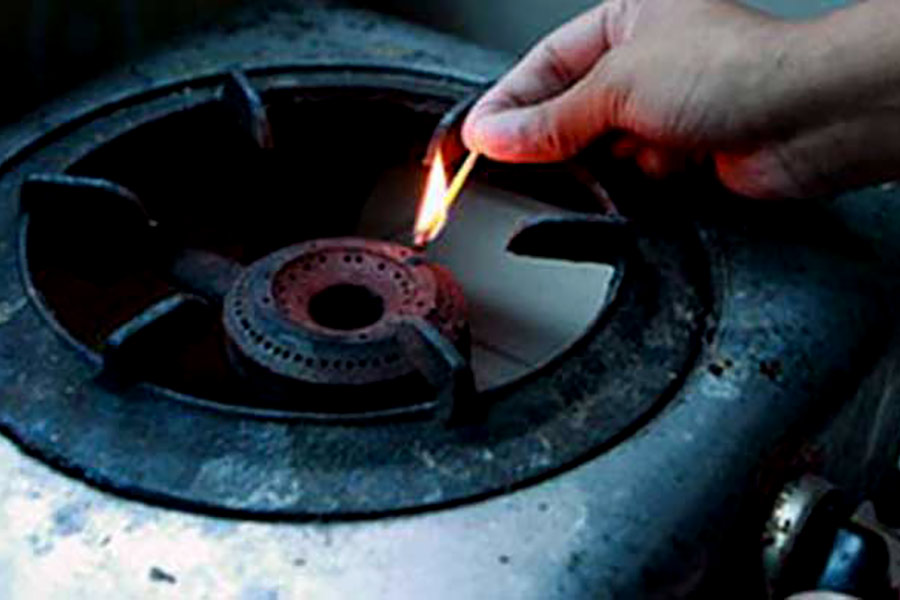
Published :
Updated :

For the last few weeks, natural gas supply shortages for domestic, commercial and industrial users have become a major topic of discussion in the country. Gas supply and demand mismatch is not at all a new phenomenon for last couple of years in the country. Petrobangla, the responsible organisation for production, transmission and distribution of natural gas in the country, estimates the present natural gas demand to be 3,800 million cubic feet per day (mmcfd). The present supply (productions from local gas supply companies of Petrobangla and International Oil Companies (IOC) and import LNG) is approximately 2,500 mmcfd. Import sources can supply approximately 850-900 mmcfd gas (LNG converted to natural gas and supplied to gas pipeline systems) provided necessary LNG cargo is in place and the two installed FSRUs are in operation.
Petrobangla, on average, have been paying around US$ 400 million per month for import gas as well as for the share of IOC gas it consumes. Despite growing demands for more gas supply, Petrobangla can not go for additional import at this moment due to FSRU capacity limitations as well as for the limitations of domestic production capacities.
The latest gas supply crisis emerged in November last year mainly in Chattogram area. Due to technical problems on January 18, 2024 at the FSRUs (2 Floating Storage and Re-gasification Units installed at Maheshkhali, Cox's Bazar for facilitating supply of natural gas from imported LNG to the national gas grid) gas supply in the Chattogram and adjacent districts stopped for several hours. However, the supply from the FSRU resumed on the following day but the shortages of supply have not fully been recovered. Karnafuli Gas Distribution Company Ltd (KGDCL) sources suggest that the utility company has been supplying natural gas to nearly 1,200 industrial (large and small) consumers and there is a demand for 300-320 mmcfd in its command area. Published reports suggest that demand for industrial consumers under KGDCL remains approximately at 80-100 mmcfd. Gas supply crisis is not unique for Chattogram area alone. Other industrial areas of the country has been suffering for gas supply interruptions and shortages as well.
The World Economic Forum (WEF) report released recently identified that the energy supply remains the major challenging threat for Bangladesh business sector in the near future. Published sources indicate that 66 per cent businessmen in Bangladesh (who participated in the Executive Opinion Survey conducted globally for WEF) consider that the energy supply will remain the major threat for business in the country for next two years. Local business leaders report a substantial decline in productions due to gas and power supply shortages. State Minister for Power, Energy and Mineral Resources of the Bangladesh Government Mr. Nasrul Hamid, MP after his re-appointment for the third time has recently stated that the people would have to wait at least two more years to get uninterrupted supply (of gas).
Earlier, government had significantly increased gas prices for industries and all other categories of consumers. Industry owners agreed for enhanced gas tariff with the expectations that they would receive uninterrupted gas supply. The government promised for uninterrupted gas supply to industries on a priority basis by enhancing exploration of local gas and by adding new import capacity of gas. A number of programmes have been initiated by Petrobangla to drill more wells (exploration and work on wells for enhancing gas productions). Media reports inform that there was a plan for drilling 46 wells for enhancing natural gas production within four years. Within 2022-2023, there was a plan for drilling 21 drill wells for gas. So far, drilling of 9 wells has been done adding insignificant (25 mmcfd) volume of gas to the national grid ( in place of expected 280 mmcfd). Exploration works in the new offshore and onshore blocks have not commenced as expected. Chairman Petrobangla hoped that 500 mmcfd gas would be added to the national grid from the ongoing drilling programmes within 2025 (after completion of drilling). He further expressed hope that Chevron, the IOC working under Production Sharing Contracts (PSC) with Petrobangla was optimistic to discover additional 1.4 trillion cubic feet of gas at the flanks of the Bibiana gas field. If the expectations are met within 2024, Chevron may increase its gas productions from 2026.
Additionally, 2 more FSRUs (one at Maheshkhali to be installed by Summit Group and the other at Payra to be installed by Excelerate Energy) installations are expected to be completed and connected with National gas grid. Petrobangla has been negotiating terms and conditions for import of gas through pipelines (re-gassified LNG) with H-Energy, India. Petrobangla sources expect that within June 2024, the contract for gas supply through pipelines from India will be signed and gas may start to flow shortly afterwards through the pipelines. By the end of 2026 and early 2027, Petrobangla expects to import (LNG processed through 4 FSRUs and by gas pipelines from India) approximately 2,200-2,500 mmcfd gas for the national grid. However, energy sector experts believe that there will be approximately 1,000-1,200 mmcfd gas shortage (considering the demand for 5,500-6,000 mmcfd gas in the domestic market in 2029-2030) even if Petrobangla succeeds in completing all the projects.
Petrobangla Chairman believes that within that period nuclear power supply from Rooppur NPP will significantly ease the conventional primary fuel (natural gas and liquid petroleum) demands for power generation. Also renewable energy sources (solar and wind energy plants) will ease the power sector demands.
The hike in gas (and electric energy) price will significantly affect the country's gas scenario. Industries (and other consumers) will have to search for efficient energy use for their survival. Increased energy efficiency may contribute towards easing pressures on natural gas demand in the country.
Mushfiqur Rahman is a mining engineer. He writes on energy and environment issues. mushfiq41@yahoo.com


 For all latest news, follow The Financial Express Google News channel.
For all latest news, follow The Financial Express Google News channel.